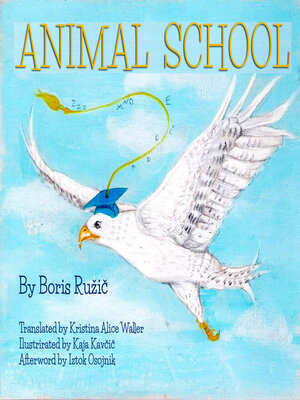
Sign up to save your library
With an OverDrive account, you can save your favorite libraries for at-a-glance information about availability. Find out more about OverDrive accounts.
Find this title in Libby, the library reading app by OverDrive.



Search for a digital library with this title
Title found at these libraries:
| Loading... |
Animals have featured in fairy tales and folk stories as far back as the narrated memory of humankind goes, their role seemingly more important than that of humans. In the oldest Egyptian stories, gods take the form of falcons, sacred bulls, snakes, ibises, and the like; even cats and scarab beetles were considered sacred. Tales from other parts of the world feature creatures such as flying snakes and dragons: mighty kingdoms chose lions, two-headed eagles and other majestic animals as their emblems; even Zeus, the king of the gods on Mount Olympus, would take the form of a swan or bull when necessary; the serpent plays a central role in the story of Adam and Eve; the peacock has long symbolised the afterlife; at the time of the first persecution of the Christians, Christ was represented by a fish. Ancient tribes worshipped and identified with totemic animals, and stories about them were preserved through generations by means of sacred and magical traditions essential to these communities.
Furthermore, fables, a special type of narrative, were formed in which animals take on human roles, conveying events and relationships which indirectly teach both children and adults about right and wrong. Certain animals have taken on a fixed character in fables; their foxes are thus cunning thieves, bulls forceful and strong but a bit silly, bears sweet-toothed and prudent judges, owls wise, sheep stupid and meek, lions regal, wolves wicked and voracious, snakes sneaky and seductive, swans useless and haughty, spiders tireless weavers, and donkeys patient toilers. Poets of all eras sing of nightingales and larks, of oxen, crows, thrushes, panthers, and others from the animal kingdom.
Tales with animals are exceptionally vivid and remain as popular with children today as they did in the past; and these tales, using simple but poignant description, reveal wondrous worlds and guide the children and adults alike through these worlds, providing lessons in morality.
Boris Ružič's fables' animals are determined and free; they take destiny into their own hands and make sure things turn out to the benefit of all; they teach us that there is a solution to every problem and that we can achieve anything with enough will and perseverance. And this is the best of life's lessons.
Iztok Osojnik
The Author on Fairy Tales
Fairy tales' holistic life messages convey not only what one knows and is able to do, but also what one is allowed and not allowed to do; fairy tales offer new hope and show us the way forward.
Many modern psychotherapeutic schools use fairy tales as an extremely effective therapeutic device for holistically addressing individuals, mobilising their imagination and emotions.
Fairy tales enable children to deal with existential questions symbolically and to grow thrive without worry, developing mature and whole personalities. From this point of view, fairy tales are also important for adults; they recognise our experience, our happiness, our hardship, our pain.
Above all, fairy tales foster human imagination and, in general, cognitive ability; or as Albert Einstein put it: "If you want kids to be smart, read them fairy tales. If you want them to be even smarter, read them still more fairy tales."
Boris Ružič
About the Author
After successfully completing his training as a veterinary technician and trying several professions, Boris 'Bobi' Ružič, born in Ljubljana in 1954, finally discovered his mission in life in fairy tales. He began developing his narrative skills when his daughter was born and gradually began inventing fairy tales not only for children,...






